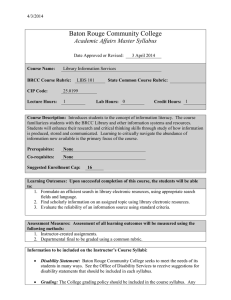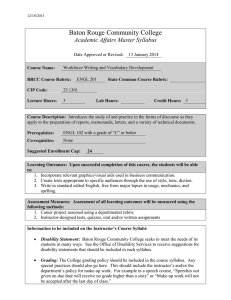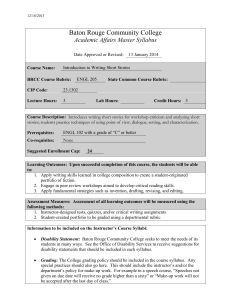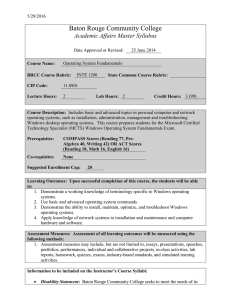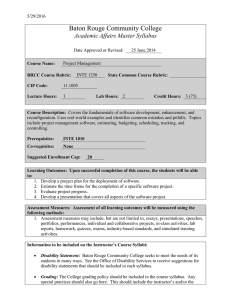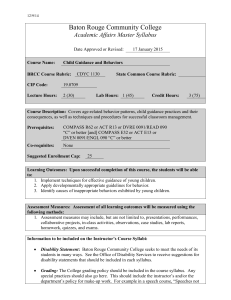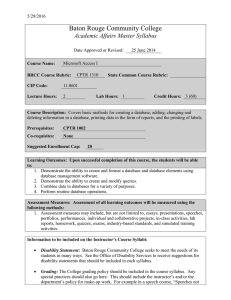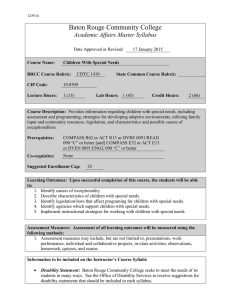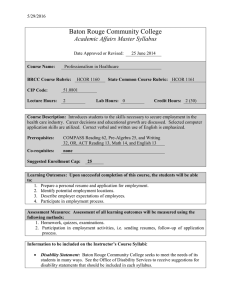Table of Contents - Baton Rouge Community College
advertisement
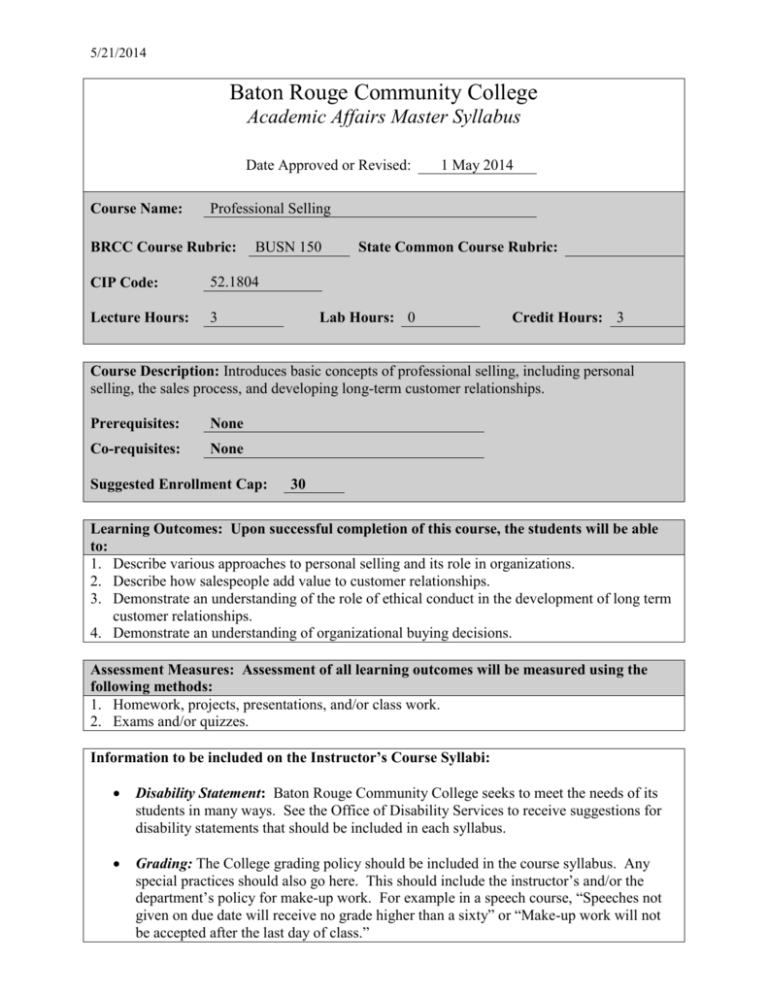
5/21/2014 Baton Rouge Community College Academic Affairs Master Syllabus Date Approved or Revised: Course Name: 1 May 2014 Professional Selling BRCC Course Rubric: BUSN 150 CIP Code: 52.1804 Lecture Hours: 3 State Common Course Rubric: Lab Hours: 0 Credit Hours: 3 Course Description: Introduces basic concepts of professional selling, including personal selling, the sales process, and developing long-term customer relationships. Prerequisites: None Co-requisites: None Suggested Enrollment Cap: 30 Learning Outcomes: Upon successful completion of this course, the students will be able to: 1. Describe various approaches to personal selling and its role in organizations. 2. Describe how salespeople add value to customer relationships. 3. Demonstrate an understanding of the role of ethical conduct in the development of long term customer relationships. 4. Demonstrate an understanding of organizational buying decisions. Assessment Measures: Assessment of all learning outcomes will be measured using the following methods: 1. Homework, projects, presentations, and/or class work. 2. Exams and/or quizzes. Information to be included on the Instructor’s Course Syllabi: Disability Statement: Baton Rouge Community College seeks to meet the needs of its students in many ways. See the Office of Disability Services to receive suggestions for disability statements that should be included in each syllabus. Grading: The College grading policy should be included in the course syllabus. Any special practices should also go here. This should include the instructor’s and/or the department’s policy for make-up work. For example in a speech course, “Speeches not given on due date will receive no grade higher than a sixty” or “Make-up work will not be accepted after the last day of class.” Attendance Policy: Include the overall attendance policy of the college. Instructors may want to add additional information in individual syllabi to meet the needs of their courses. General Policies: Instructors’ policy on the use of things such as beepers and cell phones and/or hand held programmable calculators should be covered in this section. Cheating and Plagiarism: This must be included in all syllabi and should include the penalties for incidents in a given class. Students should have a clear idea of what constitutes cheating in a given course. Safety Concerns: In some programs this may be a major issue. For example, “No student will be allowed in the safety lab without safety glasses.” General statements such as, “Items that may be harmful to one’s self or others should not be brought to class.” Library/ Learning Resources: Since the development of the total person is part of our mission, assignments in the library and/or the Learning Resources Center should be included to assist students in enhancing skills and in using resources. Students should be encouraged to use the library for reading enjoyment as part of lifelong learning. Expanded Course Outline: 1. Overview of Personal Selling a. Evolution of Personal Selling b. Contributions of Personal Selling c. Classification of Personal Selling Approaches 2. Foundations of Professional Selling a. Developing Trust and Mutual Respect with Clients b. How to earn Trust c. Sales Ethics d. Understanding Buyers e. Sales Communication Skills 3. Initiating Customer Relationships a. Strategic Prospecting b. Sales Dialogue Planning 4. Developing Customer Relationships a. The Sales Call – Creating and Communicating Values b. Addressing Concerns c. Earning Commitment 5. Enhancing Customer Relationships a. Expanding Customer Relationships b. Assuring Customer Satisfaction c. Increasing Customer Value through Teamwork 2
